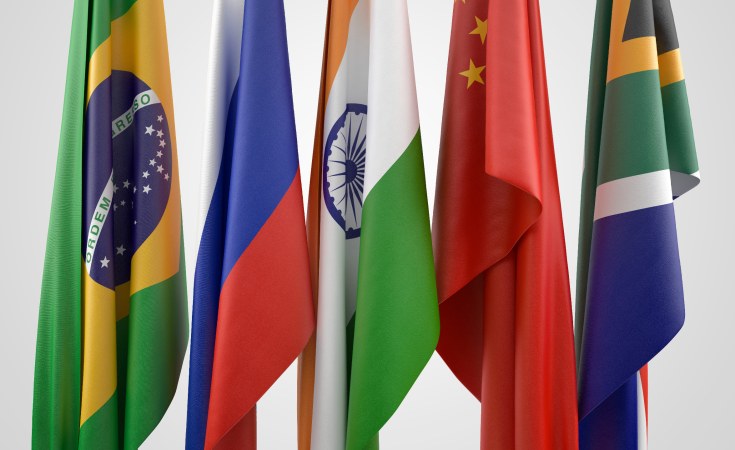The announced expansion of the five-nation Brics club of emerging economies was described as "historic" by Chinese President Xi Jinping, but it is still not clear how far the countries' common interests stretch.
The growth of Brics "will... further strengthen the force for world peace and development" the president said while addressing the leaders gathered at a conference centre in South Africa's commercial hub, Johannesburg.
The Brics countries - Brazil, Russia, India, China and South Africa - are often seen as a counterweight to the Western-led world.
The six new countries - Argentina, Egypt, Iran, Ethiopia, Saudi Arabia and the United Arab Emirates - are set to join in January.
China was the state pushing hardest for group expansion as a way to counter Western dominance.
Steve Tsang, director of London's Soas China Institute, says though the Brics members do not have much in common on the surface, President Xi was trying to show his fellow bloc members that they all want a similar future: none of them want to live in a Western-dominated world.
"What the Chinese are offering is an alternative world order for which autocrats can feel safe and secure in their own countries," says Prof Tsang.
"They can find an alternative direction of development without having to accept the conditionalities imposed by the democratic Americans and European powers."
'Building partnership'
The host, South African President Cyril Ramaphosa, beamed as he made the announcement about the new joiners.
"We value the interest of other countries in building a partnership with Brics," Mr Ramaphosa said.
He went on to say that more countries will join in the future after the core nations agree on criteria for membership.
But there were divisions this time on how many countries should be allowed to join and how quickly.
A leaders' press conference was scheduled for Wednesday after rumours were swirling about five countries being added to the bloc, but it was cancelled at the last minute.
Then Brazilian President Luiz Inácio Lula Da Silva was a no-show to Wednesday's leadership dinner.
We do not know why exactly, but he is very conscious about maintaining ties with his Western allies, and was picky about admittance.
Then late Wednesday night, journalists received an advisory for an early morning press conference, just for it to be delayed again by two hours. These were signs that discussions were under way until the very last minute, as there was a surprise sixth country added.
At the press event, the leaders from each country were then able to give individual reactions to the news.
Russian President Vladmir Putin joined by video link from Russia because of the danger of being arrested over alleged war crimes in Ukraine.
In his remarks, he once again took aim at Western powers, saying their "neo-liberalism" posed a threat to both traditional values in developing countries and to the emergence of a multi-polar world where no one country or bloc dominated.
Without naming names, it was clear who President Putin was speaking about: the United States.
And though the super-power was not at the meeting, the US was talked about, or referenced, quite a bit.
On Tuesday, White House National Security Advisor Jake Sullivan attempted to play down the bloc's expansion plans.
He said that due to Brics countries' divergence of views on critical issues, he did not see it as "evolving into some kind of geo-political rival to the United States or anyone else".
And he may be right.


